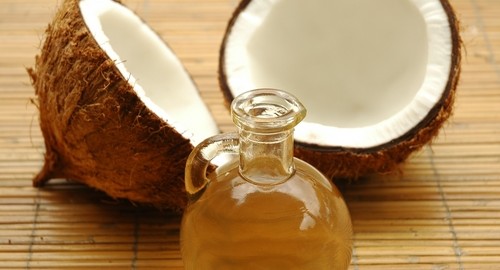Coconut Oil is plentiful in many households and a secret that we all need to make public. Read on to see what New Hope has to say on the topic….
As the functional ingredients category migrates ever more equatorially, it’s the flashy and exotic-sounding superfruits that get all the attention—açai, goji, mangosteen. But while industry was distracted by all the pretty colors, a hairy, brown fruit has taken center stage: coconut. Here’s where it’s turning up as a functional ingredient in the nutrition industry.
Coconut water
The most growth has been in the sports nutrition category, shooting up 73 percent in the last year. Thank coconut water for making this a huge splash in the market. Jim Tonkin, brand consultant for Zico Natural Coconut Water, estimated they’ve seen 250 percent growth in sales each year since 2009. He attributed some of that growth to increased market access as a result of investment by the Coca Cola Company, as well as their development of a PET bottle, moving away from the Tetra Pak cartons.
Nutrition Business Journal estimates that Zico’s year-to-date sales are breaking north of $55 million with no sign of slowing. But Zico isn’t the only coconut water producer to be scooped up by Big Bev. Pepsico has invested heavily in O.N.E. and—along with Coca Cola—will most likely take the naturally-hydrating beverage mainstream.
Gatorade continues to dominate close to three quarters of the sports hydration market, said Tonkin, but as consumers get more health-conscious they’re responding to the no-sugar-added, naturally electrolyte-packed coconut water. But Tonkin warned, “in any vertical market in the beverage category, when you find a successful product, everyone copies it. So consumers need to be good at label reading to make sure that what they’re getting is all natural coconut water and that it has the right levels of vitamins and minerals.”
Coconut oil
Coconut oil is an old familiar face in the natural foods and products industry. But it has hit its stride recently and is asserting itself as a force in all things healthy and natural—from hair and skin care to cooking oil and food. According to SPINS, sales of coconut oil grew a modest, but noticeable 27 percent in the natural channel this year. But sales in the FDM market are up 40 percent from a year ago and more than 53 percent compared to two years ago, which indicates that consumers are taking this product seriously.
Coconut milk
Coconut milk continues to gain momentum moving out of the can and into the carton as a nutrient-rich dairy alternative. Brands like So Delicious, Imagine Foods (Coconut Dream), and Silk are scooping up this space. In the natural channel, it’s used as a nondairy alternative to everything from coffee creamer to yogurt.
Keep an eye on coconut milk because as awareness of dairy intolerance grows this category is set to take off. According to the Asthma and Allergy Foundation of America most people have some degree of lactose intolerance by age 20, and the National Institute of Health estimates as many as 50 million Americans (16 percent) are lactose intolerant.
Coconut flour and sugar
But it’s the less well-known products such as coconut flour and coconut sugar that reveal the real flexibility and innovation potential with this ingredient. Coconut flour’s high fiber and protein content, combined with fewer carbs than other flours, ought to make it a competitor in the gluten-free and weight-loss markets. It also has a natural sweetness that precludes the need to add excess sugar in a typical recipe.
Coconut palm sugar is the shining star of coconut ingredients. Its low glycemic index and natural sweetness make it a no-brainer as an alternative to cane sugar. Produced from the nectar of the coconut flower, palm sugar has been named the world’s most sustainable sweetener by the Food and Agriculture Organization.
“Coconut palms produce an average of 50-75 percent more sugar per acre than sugar cane and uses one-fifth the resources,” explained Victoria Hartman, executive vice president of Madhava Natural Sweeteners. “Coconut palm trees can produce fruit and nectar for decades. This means that a farmer can choose to produce sugar from one branch and let a different branch mature to coconuts.”
All my best,
Stefani Thionnet
Stay focused and never give up!








